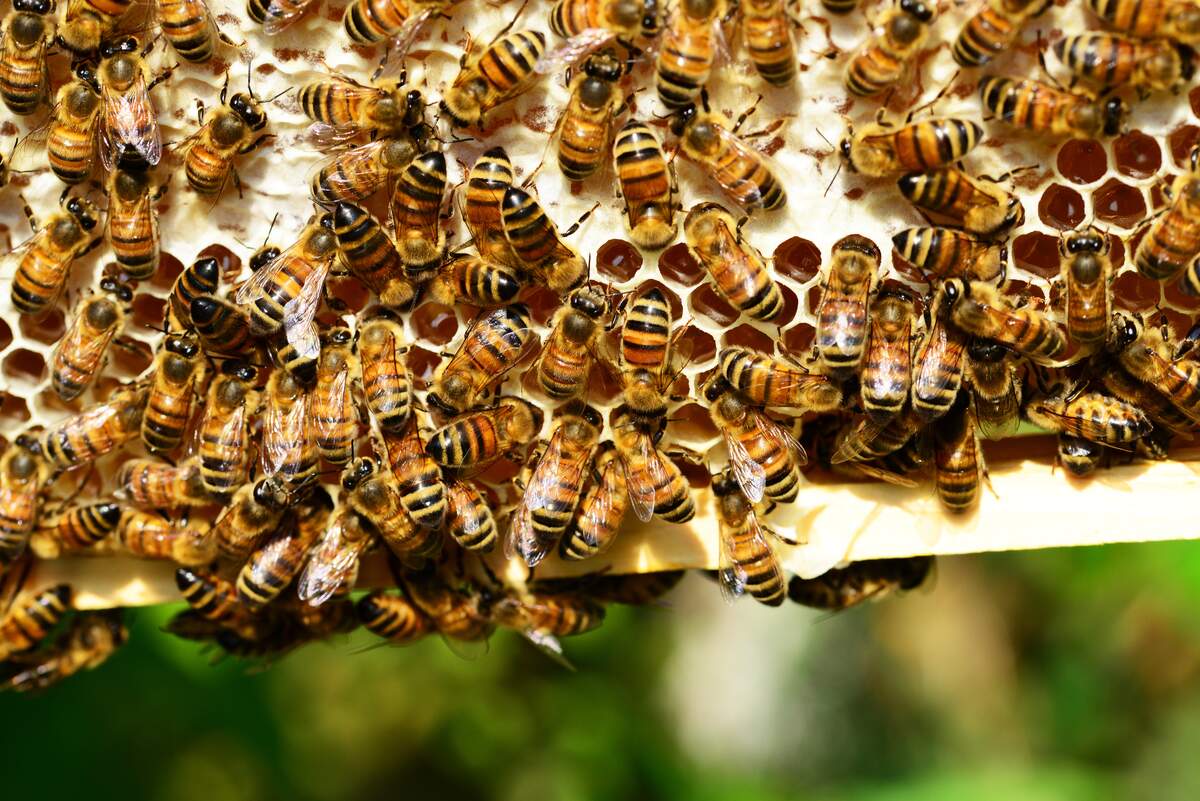

World Bee Day
Observed
annually on May 20th (since 2015)
Dates
Founded by
Slovenian Beekeepers' Association in 2014
United Nations General Assembly (UNGA) on December 20th, 2017
Hashtags
Sources
In 2014, the Slovenian Beekeepers' Association came up with the idea for World Bee Day. A resolution for the day was proposed to the United Nations by Mag. Dejan Židan, Project Manager of the World Bee Day Project and Deputy Prime Minister of the Republic of Slovenia. On December 20, 2017, the UN General Assembly adopted the resolution. All UN countries adopted it unanimously, and 115 countries signed on as co-sponsors. The day was designated "to raise awareness of the importance of pollinators, the threats they face and their contribution to sustainable development." Put another way, according to the UN, the day's objectives are to bring to the attention of those in power that protecting bees is important, to remind us that we rely on bees and other pollinators, to protect bees and other pollinators in order to help solve problems related to the global food supply and the elimination of hunger and to stop the further loss of biodiversity and degradation of ecosystems.
Slovenia has more beekeepers per capita than any other country, with about one out of every 200 citizens there being a beekeeper. The country suggested that World Bee Day take place in May because bees in the Northern Hemisphere are most active at this time and start reproducing then. It is also at this time that pollination is most needed in the hemisphere. In the Southern Hemisphere, it is a time when bee products are harvested. Besides honey, these products include the likes of pollen, royal jelly, beeswax, and propolis. The 20th of the month was chosen as the date of the observation because it is the birthday of Anton Janša (1734-1773). A pioneer of modern beekeeping techniques, Janša worked in Slovenia and was one of the most important experts of the eighteenth century in his field. He was the first to teach the modern techniques, doing so at the Beekeeping School in Vienna.
Bees are one of the main pollinators, along with butterflies, wasps, moths, flies, and beetles. Animals such as bats and hummingbirds are pollinators as well. Having a diversity of pollinators is a good thing, but many pollinators and bee colonies are under threat, often on account of humans. Bee colonies are threatened by pesticides, invasive species, change of land use, monocropping, intensive agriculture, waste pollution, shrinking habitat, and climate change. Bee and other pollinators are currently declining, and bees have faced mass extinction in the United States and Europe. Being that pollinators are necessary, this is dangerous. Pollinators help plants reproduce, with flowering plants not being able to produce unless pollinators transport pollen from the anthers to the stigmas on the flowers. Pollinators also help improve the quality and diversity of plants. These may be food crops, such as vegetables, fruits, coffee, chocolate, nuts, and seeds. These may be other plants as well, and the work of pollinators also contributes to ensuring there will be fibers like linen and cotton, biofuels, medicines, and construction materials.
Having a prevalence of bees and other pollinators helps ensure that nutrition won't suffer and that there will be food security, as about a third of the food in the world relies on pollination in order for it to be made. Bees also help ensure that farmers will have financial security. Additionally, bees and other pollinators help conserve biodiversity and help signal if an ecosystem is healthy.
By one count, there are 16,000 species of bees, but by another, there may be 25,000 or 30,000. Located on every continent but Antarctica, some of the more common bees are honey bees, bumblebees, and stingless bees. The most common in North America is the Halictidae, or sweat bee. Bees feed on nectar and pollen, and many live in colonies. Apiculture is the technical word for beekeeping, a practice that dates to Ancient Greece and Ancient Egypt. Honey bee colonies are kept in hives, and honey, pollen, royal jelly, beeswax, and propolis are harvested from them. Sometimes bees are also kept for pollinating crops and to sell to other beekeepers.
How to Observe World Bee Day
The following are some ideas on how to observe the day:
- Check for events taking place.
- Plant some bee-friendly plants and flowers in gardens, balconies, terraces, or meadows. You could also plant a whole bee garden.
- Build a bee hotel.
- Reduce or change your usage of pesticides.
- Purchase honey from a local beekeeper.
- Become a beekeeper.
- Learn about different types of bees.
- Pick up a copy of a book about bees such as The Beekeeper's Bible: Honey, Recipes & Other Home Uses.
- Those whose job it is to implement policy can focus on the conservation and enhancement of habitats for pollinators; can make sure that safer pesticides are being used for pollinators; can make sure policies support indigenous, rural, and local communities; and can implement policies that raise public awareness and knowledge sharing.
- School children could visit beekeepers and learn about honey and the plants it is made from.





















